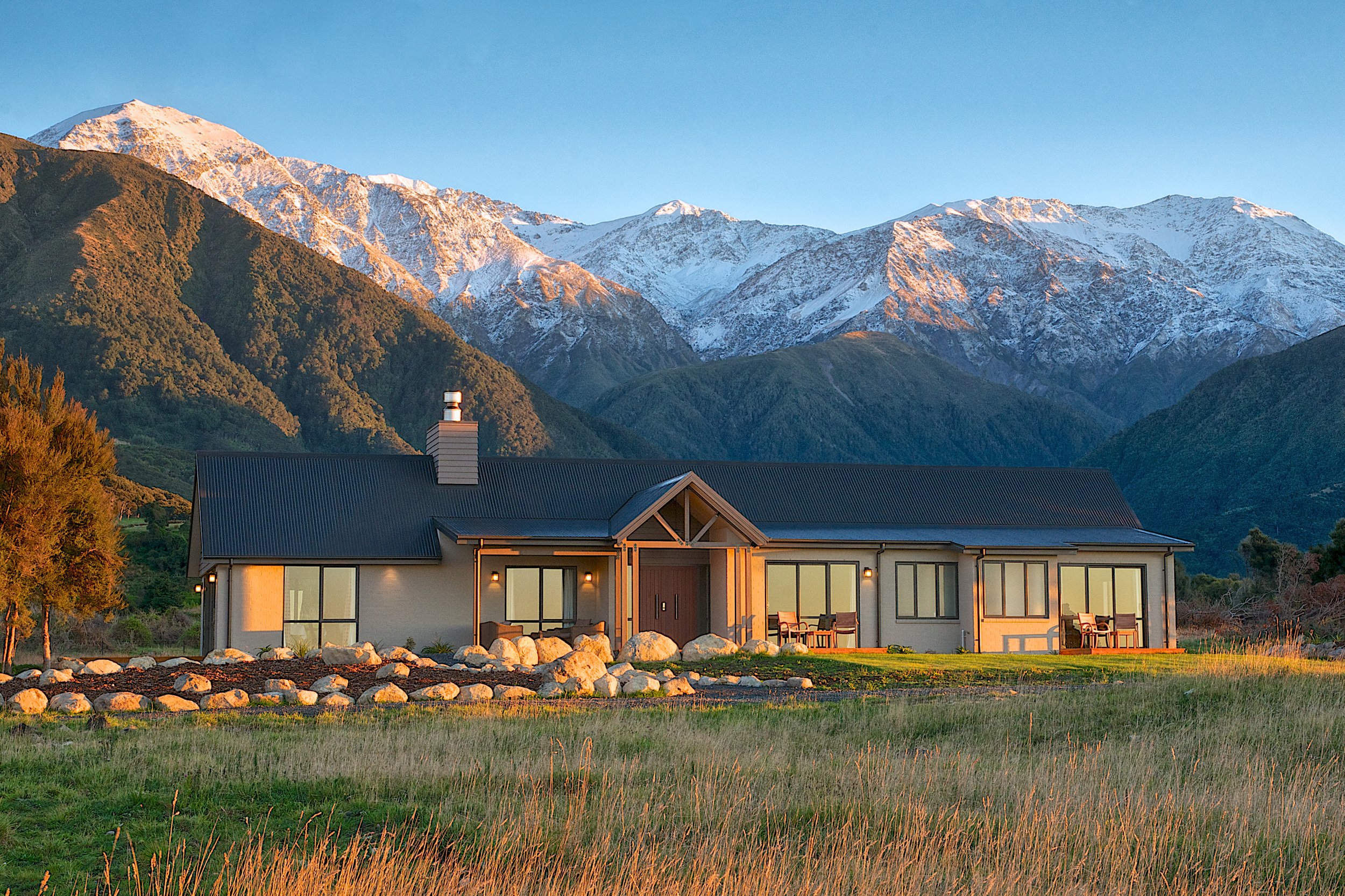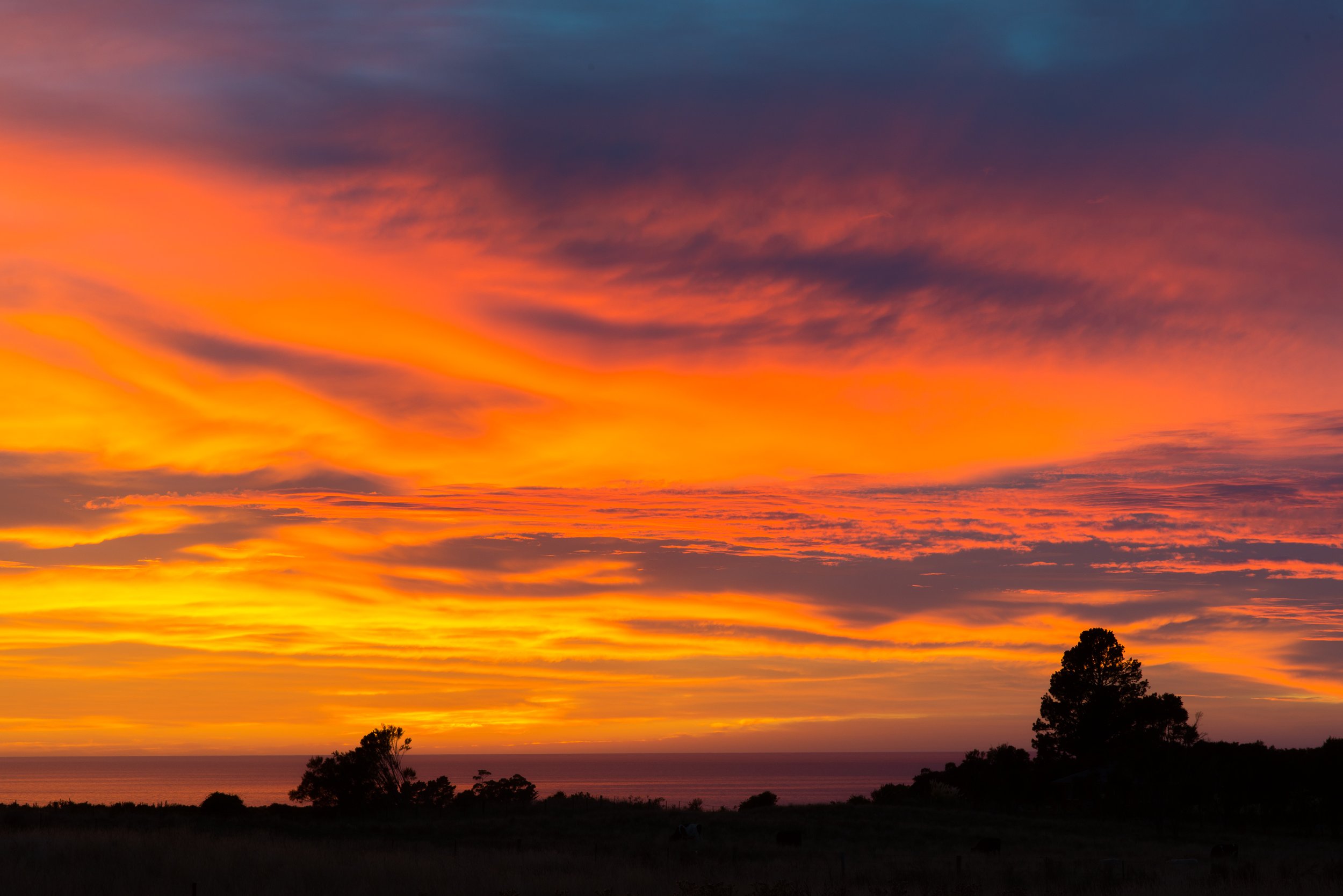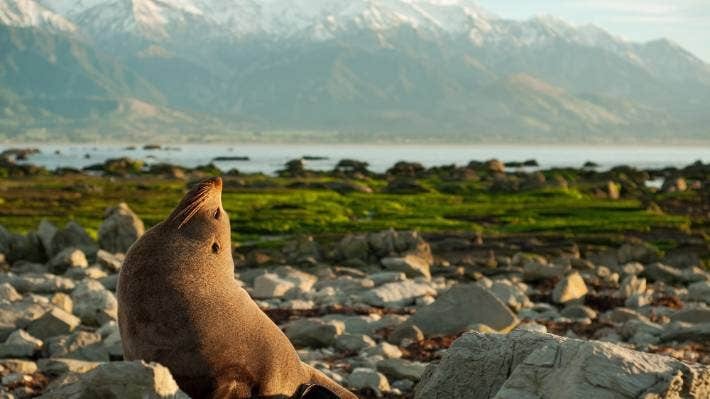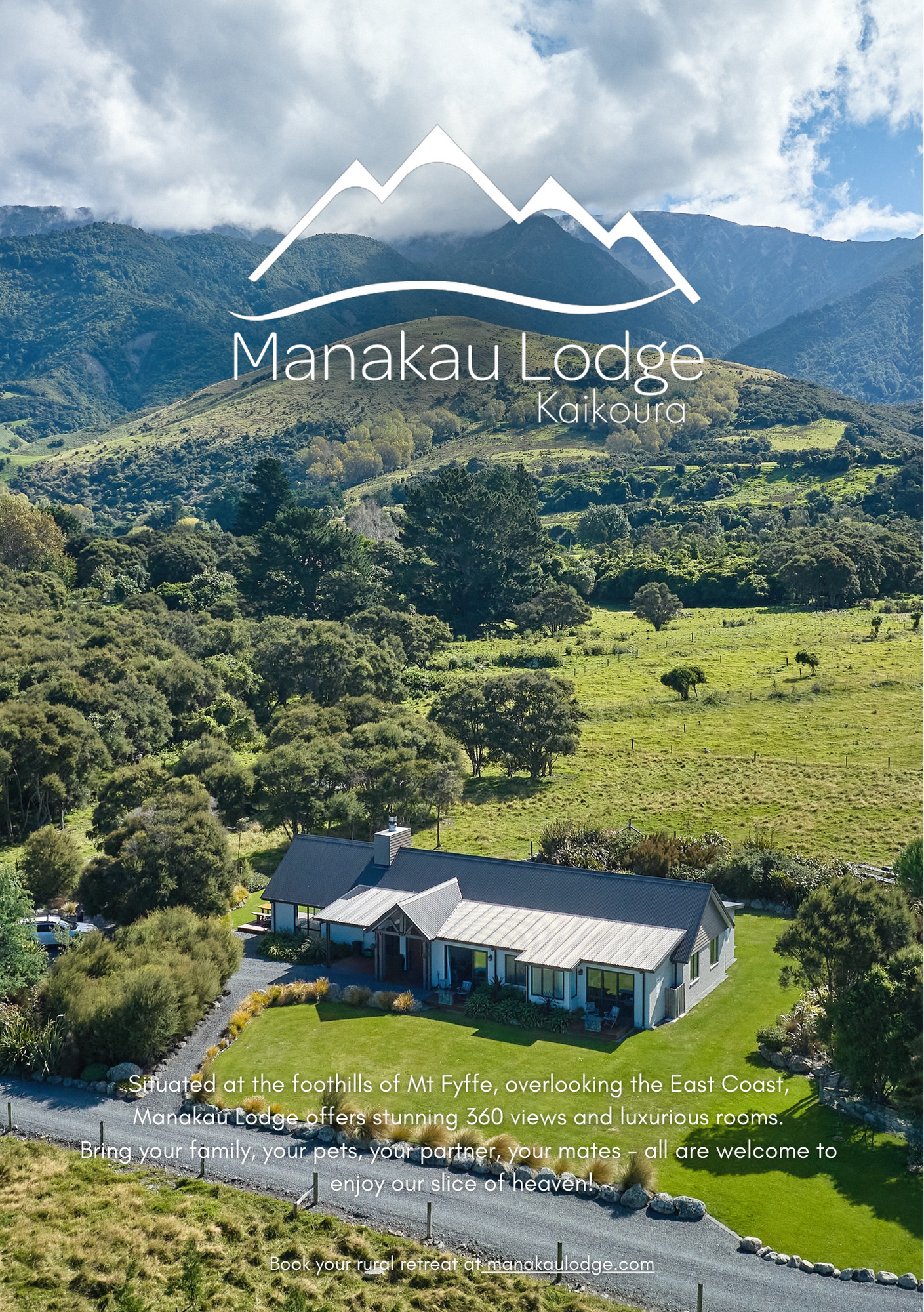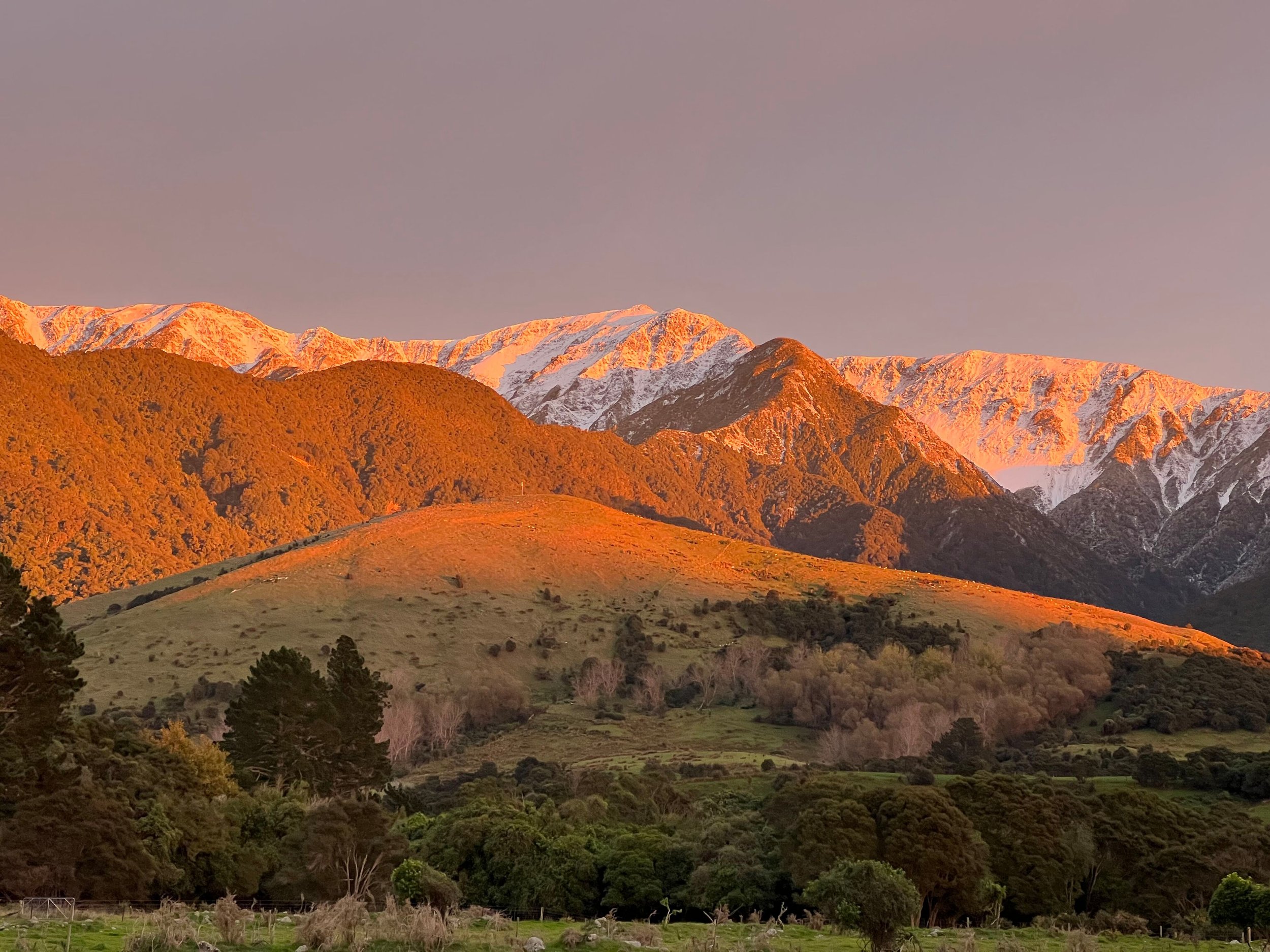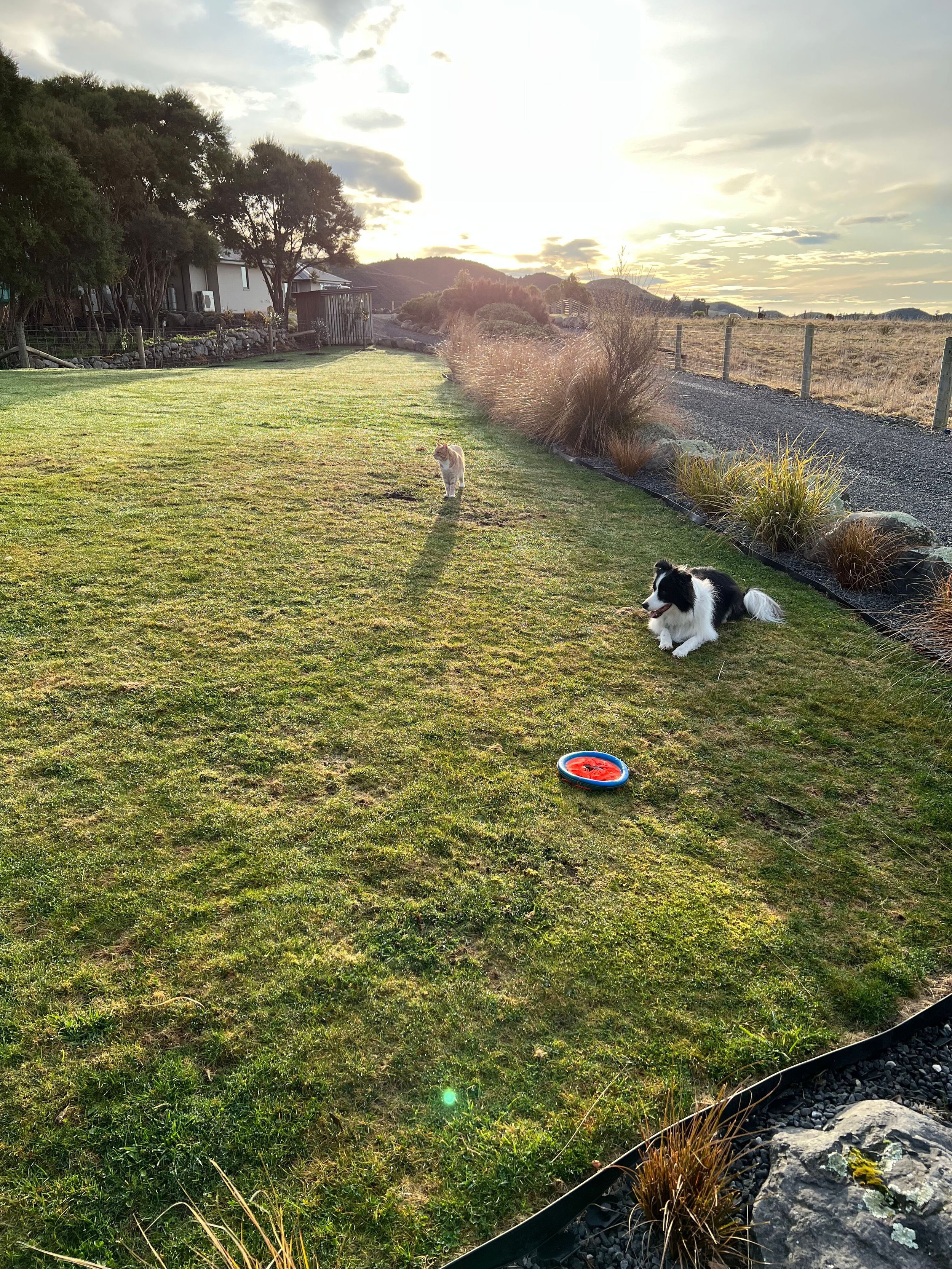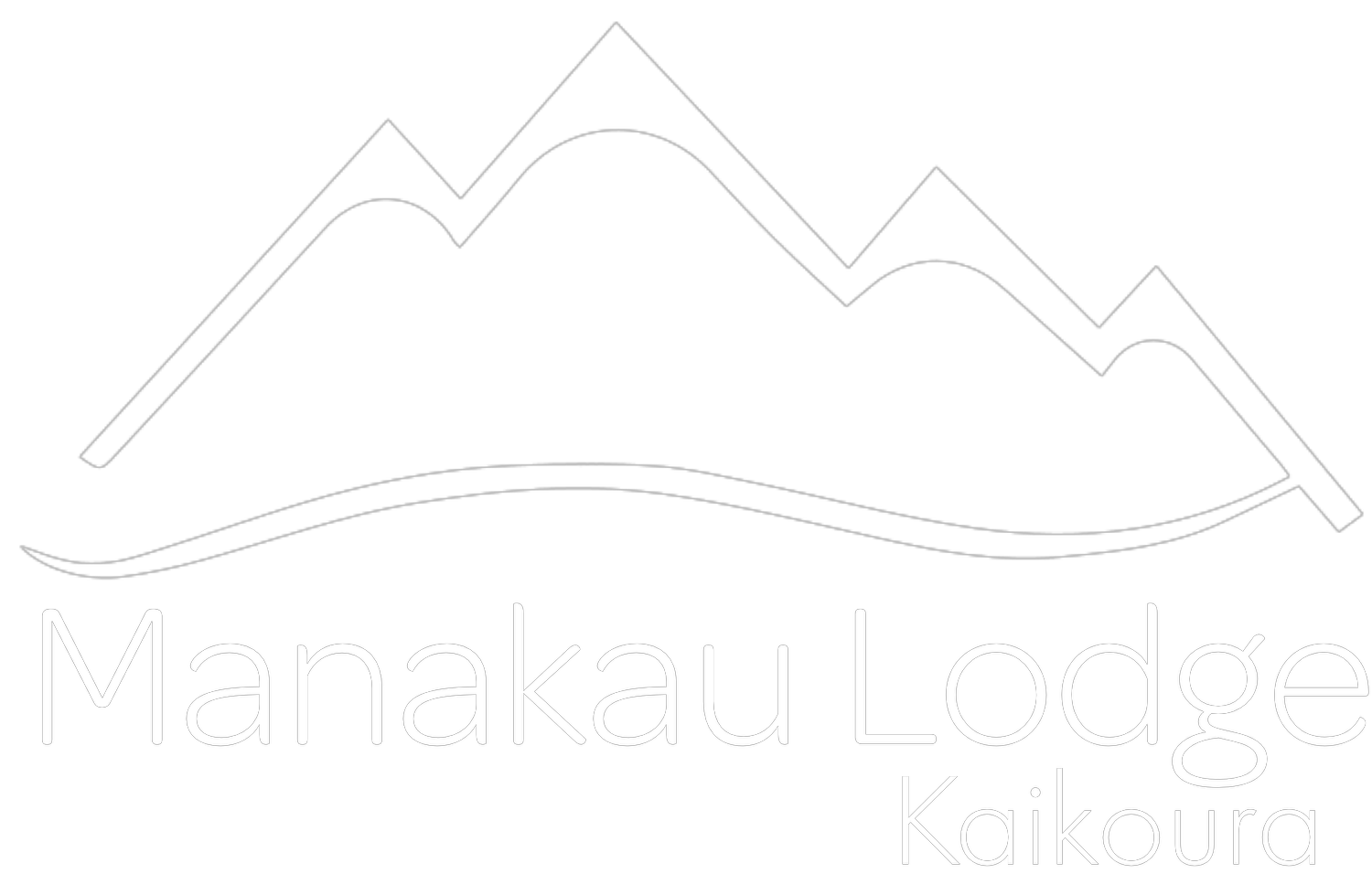Our Commitment to Sustainability:
Prioritizing Social and Environmental Responsibility
We love our one and only earth and believe in doing our absolute best to care for her and for the generations to come that will inherit her!
Take a look at our drop-down lists to see how Manakau Lodge puts Mother Nature first!
Environmental Sustainability Practices:
-
Manakau Lodge gets its water from the nearby mountains through a system managed by a local organization. The water is delivered to our property through this system. To conserve water, we have a device at the entrance of our property that controls the amount of water flowing in. This helps us use the minimum amount of water necessary. We have chosen not to install an irrigation system for our large gardens and lawns to further save water.
We also have an “Oasis Clearwater Aerated Waste Water Treatment System”. This incorporates 5 chambers and processes to efficiently and effectively process and treat all waste water from the Lodge. The result of the processes in these chambers is a clear and odourless liquid which is suitable for the irrigation of landscaped areas.
-
At Manakau Lodge, food waste is collected and either used for our compost system which in turn is used in the gardens or if appropriate, it is fed to our chickens. We have 36 chickens on the property. The eggs from these chickens are supplied back to Lodge guests for breakfast. Any surplus is supplied to our staff; owners or to the local community as a part of our social practices.
We recycle into separate bins; glass bottles; tins; plastics and cardboard.
Manakau Lodge has a modern environmentally septic tank waste system. Septic tanks are good for the environment. They eliminate waste, recycle water and naturally replenish water tables. They are also beneficial for the surrounding vegetation and wildlife as well. We have an annual maintenance programme for our septic tank system to ensure no risk of ground contamination.
Greenhouse gases resulting from rotted and otherwise wasted food account for around half of all global food system emissions, according to a new study (March 2023). Alongside the carbon emissions, this is occurring at a time when more than 800 million people were impacted by hunger in 2021, according to the UN.
-
1. There are no single-use toiletries used.
2. There are no single-use Plastics.
3. Guests are supplied with jute shopping bags.
4. There are no drinking straws.
5. All cleaning products are in refillable containers.
6. All cleaning products are environmentally friendly.
-
The power supply to Manakau Lodge is fully renewable (hydropower).
We reduce energy consumption through:
Only using LED lights
Having lights in main living areas and hallways on motion sensors, which reduces energy consumption.
All Lodge exterior signage is Solar Powered.
All appliances are modern and energy efficient. For example, we have an induction cooktop which is 10% more energy efficient than electric and 3 times more efficient than Gas (as well as being far better for air quality.
The lodge is fully insulated; ceilings; underfloor and walls.
All windows are double-glazed.
The external walls are thicker than required under the building code.
Hot water is supplied using a gas “continuous hot water system”. This is the most energy-efficient way to heat water for washing.
All Heating in bathrooms is on temperature sensors and timers so that they operate during the night-time when power availability is at the lowest cost.
Guest check-in is fully automated. No room cards, plastic or paper is used in the check-in or check-out process.
-
Trees to offset our own carbon footprint. Manakau Lodge requires 112 Native trees and shrubs to offset the emissions from typical household activities. On site to date, we have over 500 native trees, including at least 100 mature Native NZ Kanuka trees.
Manakau Lodge is about 10km north of the Kaikoura township. There is no public transportation system in Kaikoura. As such, our guests have to travel into town for activities, shopping etc.
To offset the additional CO2 output from the use of vehicles whilst staying here; Manakau Lodge has a Native Tree planting programme. We already have several hundred Native trees and shrubs on the property; however, we commit to planting an additional Native NZ tree for every booking at the lodge. We have a 5-acre property so have plenty of land to ensure we can offset the additional CO2 output associated with guests travel. The existing plantings are sufficient for the emissions from other activities associated with the lodge. -
It is no secret that Manakau Lodge has a huge open fireplace which guests enjoy the heat and ambience from. Burning wood can be problematic in that generally trees need to be cut down to provide the fuel for this form of heating. At Manakau Lodge, for our firewood supply, we use as much as possible, trees that have died. We are surrounded by Native Kanauka trees which are a wonderful source of firewood. They are a hardwood that burns extremely clean and hot if the timber is dry. We only cut up the dead branches off our Kanuka Trees for our firewood. The alternative would be to let the dead wood decompose.
There is a body of evidence that teaches us that the decomposition of a tree produces methane, a potent greenhouse gas. Burning the log releases CO2, a much less potent greenhouse gas. (And that carbon was already part of the atmosphere recently, so its emission play’s a small role in enhancing the Greenhouse Gas Effect) So burning wood produces less of a greenhouse effect than letting it rot in the forest and using propane. And because we are only burning dead dry wood, we minimise the emissions
-
Kaikoura is soon to receive world-recognised “Dark Sky Status”. Manakau Lodge supports this important status. The only outside lights here point downward and are solar-powered.
In 2016, astronomers reported that the Milky Way was no longer visible to a third of humanity and light pollution has worsened considerably since then. At its current rate most of the major constellations will be indecipherable in 20 years, it is estimated. The loss, culturally and scientifically, will be intense.
“The night sky is part of our environment and it would be a major deprivation if the next generation never got to see it, just as it would be if they never saw a bird’s nest”.
Kaikoura is a unique destination in the world where the stars will be seen in the future as they are now.
Kaikoura is also the home to the only Hutton’s Shearwater bird colony in the world. The nationally endangered Hutton’s shearwater/Kaikōura tītī (Puffinus huttoni) is the only seabird globally to breed in an alpine environment, with the only two breeding colonies remaining in the Seaward Kaikōura Range in the South Island of New Zealand. Kaikōura is therefore literally their last place on earth
Apart from its astronomical and cultural impact, light pollution is having serious ecological consequences. Migrating birds (such as the Hutton’s Shearwater) are guided by moonlight. Light pollution causes them to get confused and lose their way. Insects, a key source of food for birds and other animals, get drawn to artificial lights and are immediately killed upon contact with the source.
-
Something that is important is to be as sustainable as possible when constructing your building etc. The buildings were already built some time ago, but we have done alterations since. We used local NZ products wherever possible rather than relying on imported materials. When we built the fireplace surrounds, we used rocks from our local riverbed. This helps the environment because, during the Kaikoura Earthquake in 2016, a huge amount of rocks came down from the mountains and have been somewhat of a potential flooding hazard as they filled up the riverbed. In a small way, our using rocks from that same river bed has helped the local environment.
There are huge gardens surrounding the lodge in which we have planted hundreds of native trees and plants. Not only are these a source of carbon sequestration to offset our emissions, but we have used a substantial amount of rocks that are found on the property and in the river bed as a part of our landscaping.
All of our plants are sourced from a Nursery right here in Kaikoura. This not only provides great community support but also gives the plants the best chance at thriving once they are planted as they were grown from seeds or seedlings in this very same local environment.
All of our roads and paths are constructed and maintained by single dredged from the local rivers (there are 2 main rivers; the Hapuku and the Kowhai). Kaikoura sits between them. This is enormously helpful for the environment. Rocks and shingle that flow with the water out of the Seaward Kaikoura Mountain ranges; fill up the river beds, raising their levels significantly (for example, since the 2016 Kaikoura earthquake, parts of the Hapuku River bed have risen by up to 3 metres). By dredging out surplus single for roading, the river beds can be maintained at a level that prevents flooding in major weather events.
Social Sustainability Practices:
-
Being in a rural location; some 10 km from the local township of Kaikoura, we have a responsibility to employ locally so as to reduce the travel time and cost for staff. Our staff all live within 4 km of the lodge.
There is no public transport in our area. All of our staff are paid a transport allowance in addition to their hourly pay rate to cover their additional costs of travelling to work (albeit that they live fairly close).
Our staff are all paid 30% above the minimum wage in NZ.
We provide our staff with the food we produce on the property (eggs and meat).
Our staff are provided with modern equipment to ensure their job is made as easy and as enjoyable as possible.
We offer fair prices for our accommodation.
The local community is supported by us through the provision of eggs from our chickens.
Our tree planting programme (see under “guests carbon footprint” above) considers the needs of the local community. All trees planted under our programme are “trees for bees”. There is a particular economic benefit to neighbours who have beehives. Because of this, we plant Manaka and Kanuka as the honey produced from the flowers of these trees have high health benefits and therefore better economic benefits for our neighbours.
All produce used at the lodge is supplied locally.
We allow guests to stay at the lodge with their pets. We believe this is a socially responsible thing to do.
No products we buy are tested on Animals.
-
Manakau Lodge offers ATV adventures into the local wilderness areas. This plays a vital role in promoting conservation and wildlife preservation. By showcasing the region's native wildlife and habitats, guests gain a better understanding of the need to protect and preserve these ecosystems. This awareness translates into support for sustainable practices and conservation efforts, ensuring the long-term sustainability of Kaikoura's natural treasures. We can teach guests all about the habits of local wildlife and the region's heritage! Spot deer, look for tracks, listen to native birds, and so much more!
Our little free-range chicken farm is not only a wonderful way to recycle food scraps and supply back fresh eggs to guests, but it a wonderful way to educate children on how to best care for the chickens. Manakau Lodge is a family-friendly facility, and we get a lot of children very interested in helping to feed the chickens and collect fresh eggs for breakfast.
Our staff are all supported by and trained in our comprehensive Health and Safety systems.
We provide as much support to other local Kaikoura businesses by educating guests on activities offered and we always recommend local wherever possible. We try to facilitate bookings for guests with other businesses where appropriate.
Foraging for food is not only an exciting activity but is one of the most sustainable activities that we can encourage our guests to be involved in. Last year, Peter and Jackie Langlands of “Wild Foods” came to Manakau Lodge and guided the owners through surrounding publicly available native bush areas searching for food that is readily available and growing wild in these areas. Peter Langlands is in demand throughout New Zealand as a Professional wild foods’ forager, educating people on how to achieve food resiliency by locating and utilising the free resources available in their area. Peter has prepared a specific foraging guide for Manakau Lodge for the Kaikoura region which is available for all guests to use.
-
Manakau Lodge has implemented a policy against commercial exploitation by committing to not buying any of our consumable resources from countries that exploit labour in any form. We purchase biodegradable consumables (all of our cleaning products; hand soaps for guests etc.) that are made in NZ by a company called Will & Able in Christchurch. In addition, this company is geographically positioned to ensure minimum transportation impact on the environment.
Will & Able is the first social enterprise of its kind in New Zealand. They are on a mission to create 100 new jobs for Kiwis with disabilities and make earth-friendly cleaning products. In addition to this, all their packaging is 100% recycled. Finally, all of their containers have a ‘Return To Sender’ programme to upcycle their bottles. An estimated 50 million people were living in situations of modern slavery on any given day in 2021, according to the latest Global Estimates of Modern Slavery. Of these people, approximately 27.6 million were in forced labour and 22 million were in forced marriages.
Why this matters:
The most vulnerable — women, children, and migrants — remain disproportionately affected. More than 12 million of all people in modern slavery are children, and women and girls account for over half of them (54 per cent). Migrant workers were three times more likely to be in forced labour than non-migrant workers.
Modern slavery occurs in every country, regardless of wealth. More than half (52 per cent) of all forced labour and a quarter of all forced marriages can be found in upper-middle-income or high-income countries.
The new Global Estimates revealed that the situation is worse than when we last measured in 2016. Since then, the number of men, women, and children forced to work against their will or in a forced marriage has risen by 10 million. The worsening situation has occurred against a backdrop of increasing conflict, environmental degradation, over a decade of global democratic decline,1 a global rollback of women’s rights,2 and the economic and social impacts of the COVID-19 pandemic and responses to it. These compounding crises have led to significant disruption to employment and education, increases in extreme poverty, and forced and unsafe migration, which together heightens the risk of all forms of modern slavery, particularly for those who are already vulnerable.
- According to the Global Slavery Index
We appreciate your opinions!
Feel free to give us ideas to further our sustainability mission below!

